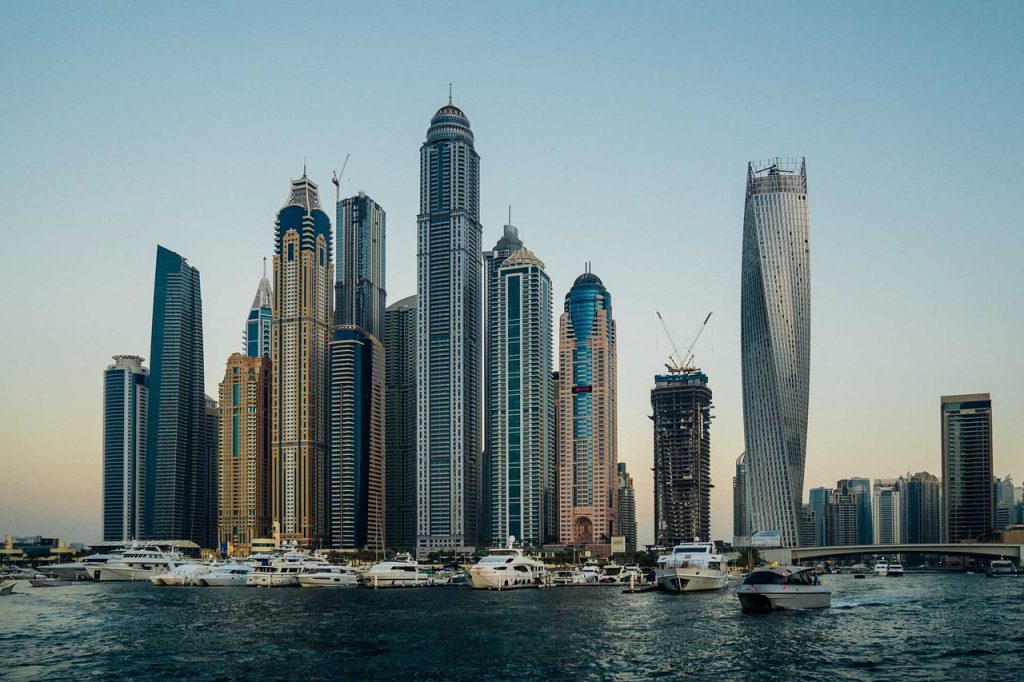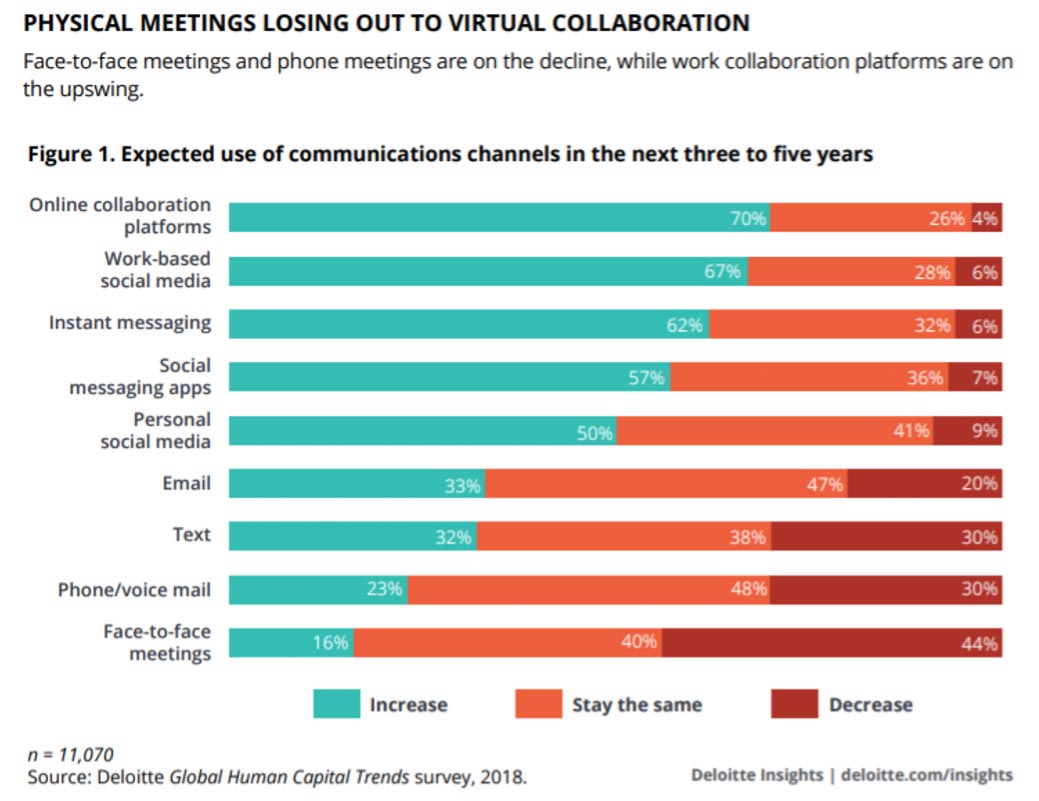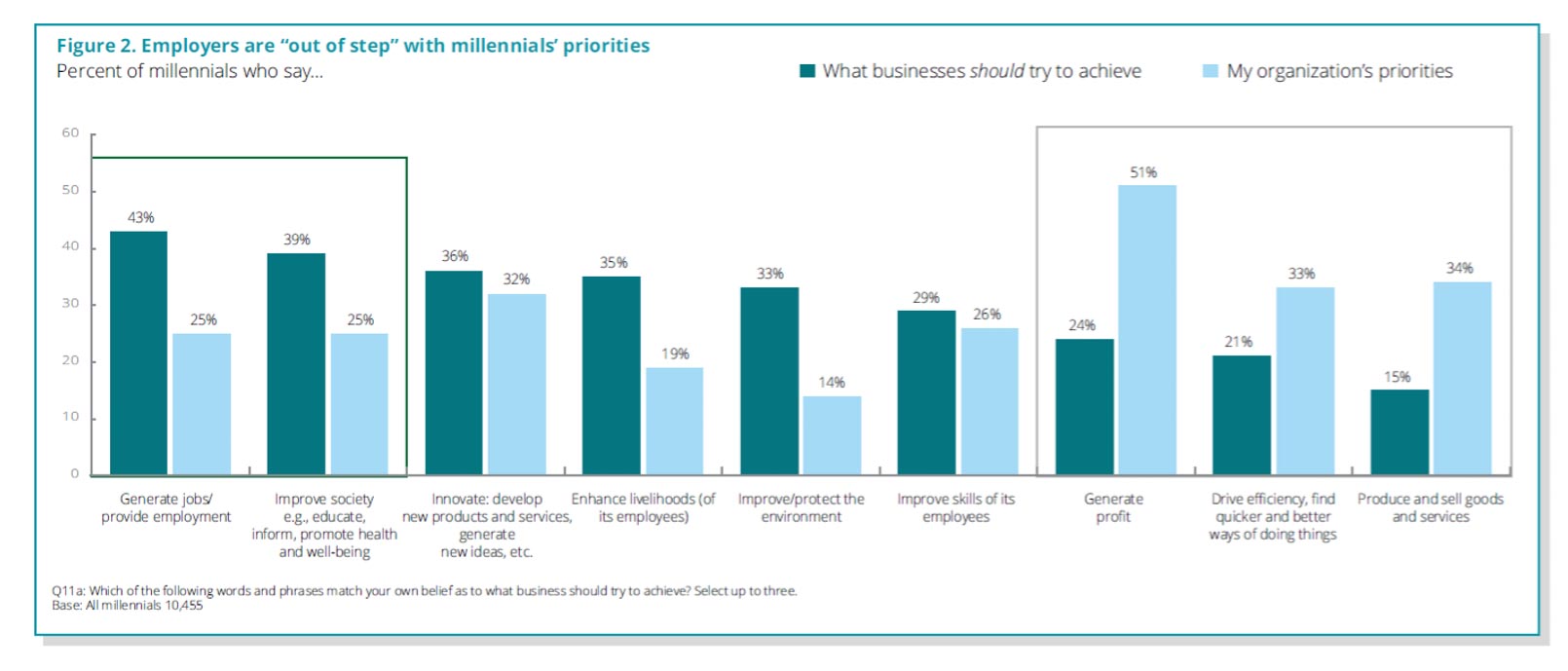Adapting Middle-Eastern Organisations to Local Millennials
A Corporate Communications Engagement Challenge

About the author
This guest post by Aurélie Sotto is based on a CIPR Professional PR Diploma assignment.

“The future promise of any nation can be directly measured by the present prospects of its youth”
– Former U.S. President John F. Kennedy
Understanding and engaging the millennial generation is a topic which has been addressed in Europe and the United States by multiple rounds of research and many publications; but rather than finding ways to engage this generation, should we not rather look at adapting and transforming today’s organisations to be better aligned with the leaders of tomorrow?
In recent years, as a result of the instability in oil prices, economies in the Middle-East have had to evolve, and local organisations, which are trailing behind in terms of processes, digitalisation and people management, are hiring more and more ‘young nationals’ (rather than expats) in line with regional governments’ policies. These organisations do not have any choice than adapting to this new generation, a generation constantly ‘connected’ to western ways of doing things. Failing to do so might result in organisations falling by the wayside on this digital transformation journey. How can Corporate Communications work with organisations leaders to lead this change?
Who are the Middle-Eastern millennials?
The Millennial Generation is highly diverse, and it wouldn’t be fair to generalise all their attributes on a global level; however, they do have common characteristics that can be looked at. Millennials in the Middle East have a lot of similarities with their peers in the West, but they also have a lot of unique traits that unfortunately, very little research has demonstrated; a shame for Middle-Eastern organisations who still need to adapt to this generation which is expected to reach 75% of the workforce by 2025.
Similarly to the global millennial population, they are looking for a good work-life balance, flexible working hours and working environment, open and honest communication, fast-tracked career, frequent feedback (once a week for the Middle-East millennials, according to the 2014 INSEAD Global Millennials review) and relationships in general (real or virtual).
Among their main qualities, we find well-educated, hardworking, technology-savvy, innovative and multitasking individuals, with a sense of purpose and a strong desire to make a positive difference in society. This is even more emphasized in the Middle East, where “Zakāt” (charity) is one of the five pillars of Islam. This desire to have an impact on the society will strongly influence their choice of employers during their career.
The Middle-Eastern employers’ challenge
According to HSBC’s 2018 Essence of Enterprise report, the Middle-East is home to the highest proportion of millennial entrepreneurs in the world, with 63% of business owners in the region being under 35, 33% of whom being driven to have a positive economic impact on the community, clearly shaping the future of the region.
When asked by Bayt in 2014 if they would prefer being employed or have their own business, almost three-quarter selected the latter. However, having grown-up in an era of political, social and economic instability, the other quarter will most likely be looking for a stable working environment with clear career development plans. They also believe that private sector organisations are more likely to influence society than government entities (INSEAD); a plus point for private sector employers to attract millennials.
For those employed, about 46% of the below 35 age group see themselves working in their current job for the next two years or less (2014 Bayt Middle East Millennials Survey). This represents a huge challenge for employers who need to find ways to alter this trend.
The importance of technology
Another important trait of our target is their connectivity. With Internet penetration, active social media and mobile phone usage at almost 100%, millennials in the region are constantly connected. Online content is predominant, with YouTube watch time in the MENA region rising by 60% year-on-year, a figure mainly attributed to entertainment that local networks wouldn’t usually offer.
Ali Ali, MENA Award-winning Film Director highlights: “It’s about successful storytelling and entertainment, which is so powerful”. This creative generation is getting their messages and stories loud and clear to the world through the use of social media, and are also becoming local citizen reporters of their generation. With the Fourth Industrial Revolution, the nature of work is changing rapidly. Employers are conscious of the need to adapt to digital technologies, and if not prepared, millennials expect a dramatic change in the workplace over the next five years.
Even though very connected, 58% of the Middle-Eastern millennials prefer face-to-face meetings when communicating with colleagues at work. However, respondents of the 2018 Deloitte Global Human Capital Trends survey believe at 44% that face-to-face meetings will decrease in the future and be replaced by many different communication channels such as collaboration platforms, work-based social media and instant messaging, highlighting their need for multiple sources of information and instantaneity.

It is worth mentioning that 78% of people are already using personal social media for work-related activities to solve problems or foster relationships with colleagues (Pew Research Center study). Corporate Communications will take a strategic approach in evaluating and determining the best digital tools and channels for their organisations, based on different factors, including audience needs and communication objectives, as well as corporate culture, pace of communication, and level of formality.
Mirroring employees’ technology usage outside the organisation with internal systems, as well as the concept of BYOD (Bring Your Own Device) will, in fact, be source of increased efficiency and productivity. To reach the expectations of the new generation, organisations need to intensify social media efforts and use social network as a means to convey brand and culture, whether it is through content curation or creation, a Facebook share, a tweet or an image.
This digital disruption will not only touch on communication channels, it will also have an effect on tools and processes with the emergence of Artificial Intelligence in IT systems, which can already analyse documents, pulse survey responses and emails, and give recommendations on individual actions.
In order to adapt to the new generation, organisational changes must include a combination of technology, physical space design, new leadership ethos, and new working style.
Aligning the employer branding
In their series ‘Understanding a Misunderstood Generation’, INSEAD recommends to “Ensure your employer brand message truly resonates with millennials’ value system as it is, rather than as it’s imagined to be.”
This is where identifying the values, needs and behaviours of this generation is crucial to be able to change culture, ethos and values of the organisation. For employed millennials, the internal brand values of the organisation (job characteristics, corporate culture and behaviours) have greater importance than the outside image (reputation).
Organisations should identify, demonstrate and find ways to communicate and raise awareness on their unique employer value proposition (EVP). According to Sparrow and Oraye, the projection of employer branding is made through a range of primary (i.e. employee reviews, corporate events, Intranet), secondary (i.e. career fairs, graduate programmes, advertising and social network) and tertiary channels (word of mouth). Most of these channels are generally handled by Corporate Communications, who will need to ensure that the messages are adapted and aligned to attract and retain millennials, and foster their engagement, using the appropriate channel with the right language and format. They will also need to align the internal and the external image of the organisation, as well as the job promise, to avoid disillusions for new hires that may face a different reality once they are employed.
Corporate Communications engagement challenge
So how do we engage Middle-East millennials? Even though financial stability and independence is a top priority for 78% of the younger generation in the region, money is far from being their first motivation at work. Let’s have a look at the employee engagement touch points that Corporate Communications can address.
A sense of purpose. “Businesses have no ambition beyond profit” – that’s the feeling millennials shared in the Deloitte Millennials survey. For them, the success of tomorrow’s organisations will depend on their willingness to adopt a long-term sustainability vision, and millennials want to be part of the positive impact businesses can have on society and the environment. For 70% of them, the organisation they will choose to work for needs to share their personal values, which demonstrate a clear link between their engagement to the organisation and their sense of purpose, however, organisations do not always prioritise issues that matter to millennials.

Source: the 2018 Deloitte Millennials Survey
Corporate Social Responsibility and Sustainability usually fall under the remit of Corporate Communications, as the latter is considered being the moral compass for the organisation, the custodian of the organisation’s reputation and image, responsible for effective employee engagement. This is the opportunity for millennials to get involved in giving back to the community and creating long-term positive impact to the environment, whilst showing pride working for an organisation that cares.
Vision, mission and values. To adapt to this generation, most Middle-Eastern organisations need to rethink their vision, mission, and values, to be aligned with the very high expectations of the leaders of tomorrow. With the insights Corporate Communications is getting on these stakeholders, they are the best placed to be the leadership team’s right-hand partner in redefining the organisational culture and ethos through the definition of new key messages towards sustainability.
The best way to deliver these changes is through storytelling, a powerful way for organisations to articulate their vision and mission to their various stakeholder groups.
This transformation process can take 5 to 10 years to be fully implemented, a time by which millennials will be leading the economy.
Transparency and trust. Regardless of their positions, they want to be informed on everything that is happening in their organisations. This means ensuring the information is immediately available on multiple sources, available “on-demand” and “on the go” from any device with engaging content and a meaningful message, while keeping brevity in the centre. They also want to place their trust in their CEO, who should, according to the 2018 Edelman Trust Barometer, lead with purpose, be authentic and galvanise employees, with the full support of Corporate Communications.
Corporate Communications’ role is to plan, support, coach, and deliver CEO communications to all employees through various channels, including staff town halls, webcasts, online videos, etc. The use of storytelling to deliver personal and corporate narratives is recommended, using a simple and accessible communication style with clear messages for all level of employees.
Being able to influence. Millennials want to be heard, contribute and feel part of the decision-making process, which shouldn’t be a challenge in the Middle-East, since traditionally decision-making is influenced by “shura” (consultation), used in Islamic societies and tribal cultures to reduce tensions within the group. Today’s leaders need to take it a step further and listen to the voice of the millennials. It is important that a constant and consistent two-way symmetrical communication (Grunig and Hunt) is implemented across all levels of the organisation.
According to a Watson Wyatt study (2004), “organisations that communicate effectively, use technology to amplify their messages”. Similar agile technologies to the ones millennials use in their personal lives should be implemented, such as digital collaboration platforms or enterprise social media, where they will be able to share thoughts, concerns and feedback with their peers and leaders.
Mentoring and feedback. Millennials value the feedback and relationships with their line managers, who they often consider as mentors. A bad relationship with their direct line managers is the first reason for this age group to leave their job. It is the role of Corporate Communications to educate line managers and senior managers on effective engagement and communication strategies, who, as mentioned by Bakker et al., have a crucial role to play in the development of positive employee engagement.
MacLeod and Clarke (Engaging for Success) have presented series of inhibitors to effective engagement by management. These include a lack of awareness and understanding of the concept, the inability to address the issue, the lack of resources to implement it, and the lack of commitment from those leaders. Some leaders also believe that once the annual engagement survey has been carried out, HR will fix it and the topic will be closed for the next year. As stressed by Ruck and Trainor, employee engagement is unlikely to improve until managers start to believe in the importance of internal communications. It is then important that Corporate Communications tackle these issues and help transform the managerial perception of employee engagement.
Middle-Eastern organisations and their Corporate Communications teams have a lot on their plate to prepare for the next decade. The millennial wave is only just lapping at the toes of the leadership teams, who have yet to realise the efforts needed to retain this new generation of workers. They must act fast and start transforming their organisations today, to be able to embrace the challenges of tomorrow. Millennials are already taking over the regional media landscape as “citizen reporters”, and through social media, they are in direct contact with brands, public figures and governments. Their understanding of digital platforms, tools and techniques will soon also transform how organisations communicate, and the actual need of Corporate Communications practitioners in the picture.
References
- Smythe, John. The CEO: Chief Engagement Officer: Turning Hierarchy Upside Down to Drive Performance. Gower, 2007
- MacLeod and Clarke: Engaging for Success, 2009
- Good communication can hugely lift employee engagement – https://cuttingedgepr.com/free-articles/internal-communication/good-communication-can-hugely-lift-employee-engagement-2/
- Exploring the connection between internal communication and employee engagement – https://instituteforpr.org/exploring-connection-internal-communication-employee-engagement/
- Internal Communication in organizations and employee engagement – http://citeseerx.ist.psu.edu/viewdoc/download?doi=10.1.1.674.6796&rep=rep1&type=pdf
- Employers Trusted Around the World – 2018 Edelman Trust Barometer – https://www.edelman.com/sites/g/files/aatuss191/files/2018-10/Edelman_Trust_Barometer_Implications_for_CEOs_2018.pdf
- How Technology Can Transform Workplace Humanity – https://www.forbes.com/sites/louisefron/2017/12/03/how-technology-can-transform-workplace-humanity/#9343c172f00d
- How Technology Is Reshaping Internal Marketing Communications – https://www.forbes.com/sites/patrickspenner/2016/12/14/how-technology-is-reshaping-internal-marketing-communications/#482e61114285
- How To Engage The Millennial Workforce – https://www.forbes.com/sites/adigaskell/2016/02/25/how-to-engage-the-millennial-workforce/#42cde4b411a2
- The Millennial Generation Research Review – https://www.uschamberfoundation.org/sites/default/files/article/foundation/MillennialGeneration.pdf
- The 2016 Deloitte Millennial Survey – Winning over the next generation of leaders – https://www2.deloitte.com/content/dam/Deloitte/global/Documents/About-Deloitte/gx-millenial-survey-2016-exec-summary.pdf
- The 2018 Deloitte Millennials Survey – https://www2.deloitte.com/content/dam/Deloitte/global/Documents/About-Deloitte/gx-2018-millennial-survey-report.pdf
- The hyper-connected workplace – https://hctrendsapp.deloitte.com/reports/2018/the-hyper-connected-workplace.html
- Entrepreneurial, creative, sceptical. The truth about MENA millennials https://www.weforum.org/agenda/2017/08/everything-you-need-to-know-about-mena-millennials/
- HSBC’s 2018 Essence of Enterprise report – http://www.hsbcprivatebank.com/en/discover/our-insights/essence-of-enterprise
- YouTube Series: The Rise of YouTube in MENA – https://www.thinkwithgoogle.com/intl/en-ae/article/youtube-series-the-rise-of-youtube-in-mena/
- 2014 INSEAD Global Millennials review – https://centres.insead.edu/emerging-markets-institute/millennials-project/
- Millennial Entrepreneurs In MENA Are More Impact-Focused Than Anyone Else In The World – http://www.incarabia.com/lead/millennial-entrepreneurs-in-mena-are-more-impact-focused-than-anyone-else-in-the-world/ (article now unavailable)
- How Millennials Are Spurring Innovation In The Middle East – https://www.forbesmiddleeast.com/en/how-millennials-are-spurring-innovation-in-the-middle-east/
- How Millennials Are Redefining The Marketing Status Quo – https://www.forbesmiddleeast.com/en/how-millennials-are-redefining-the-marketing-status-quo/
- 4 Things Arab Millennials Hate At Work – https://www.forbesmiddleeast.com/en/4-things-arab-millennials-hate-at-work/
- Bayt Middle East Millennials Survey (2014) – https://img0cf.b8cdn.com/images/uploads/article_docs/millenials-survey-report_19564_EN.pdf
- Millennials in the Middle-East Workplace – https://chapmancg.com/news/hr-networking/2017/11/millennials-in-the-middle-east-workplace/
- Internet users & penetration – http://www.internetworldstats.com
- Facebook and active social media users and penetration rate; – Digital in 2018 – https://wearesocial.com
- Internet World Stats – http://www.internetworldstats.com
- SPARROW, P. and OTAYE, L. (2015) Employer branding: from attraction to a core HR strategy. Lancaster: Lancaster University, Centre for Performance-led HR


